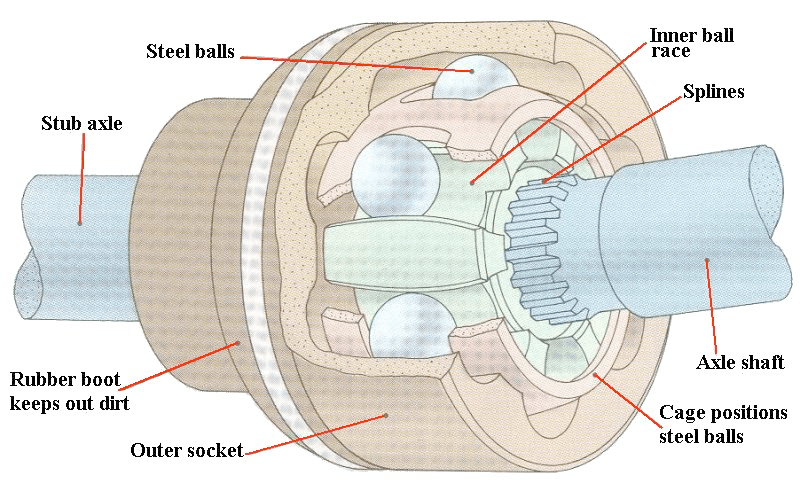Role of drive shaft CV joint & boot
Role of drive shaft CV joint & boot (CV Joint: Constant Velocity Joint)
The constant velocity joint is the main component that allows the drive shaft does what it does. Structurally, the joints are the heads that attach to the two ends of your drive shaft.
Virtually all drive shafts will have two constant velocities joint.
If you don’t look carefully, these joints can look like identical twins to untrained eyes! But, they are definitely not the same.
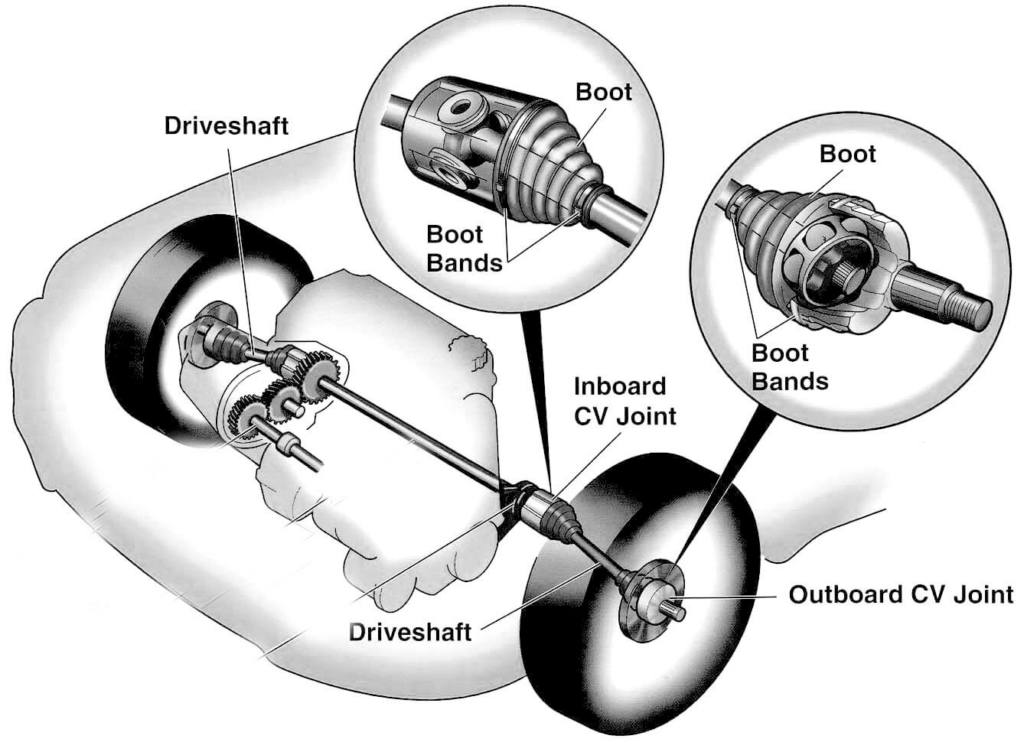
– The CV Joint transmits the power of the engine to the wheels. Bearings are used in the CV Joint as it transmits rotation and absorbs vibration while driving or movement protecting by steering the wheels.
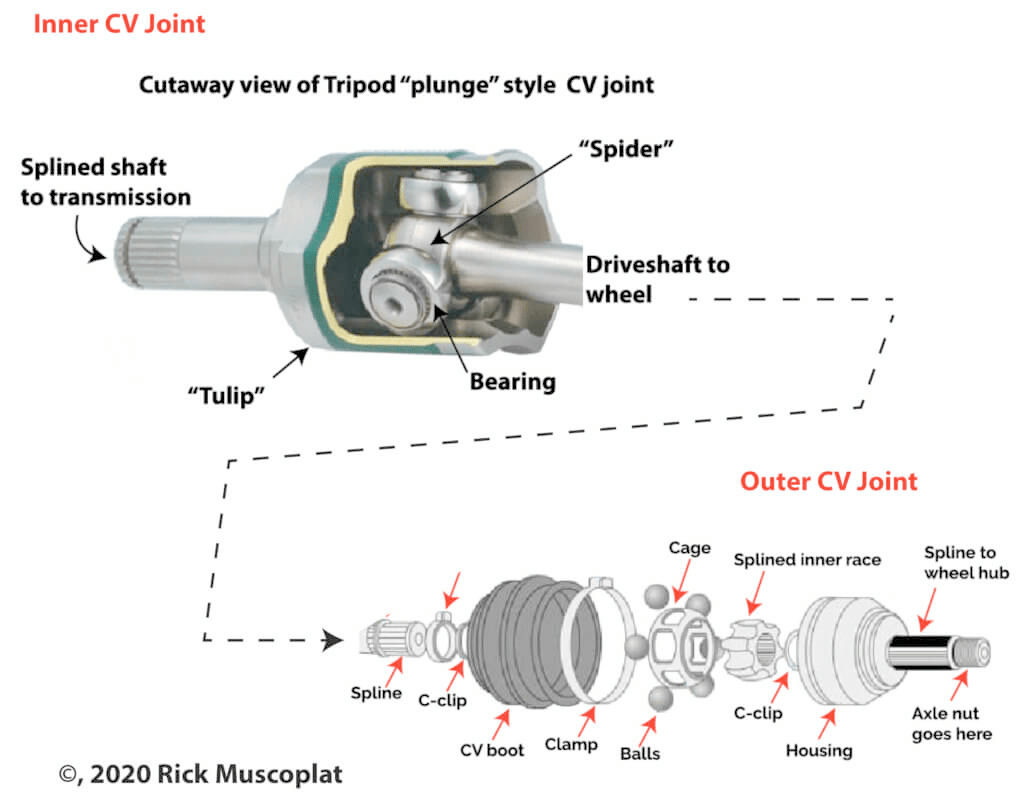
– Drive shaft boots are an important part that protects the joint of the axle (CV Joint) from dirt, water, and, contaminants.
Time for replacement of driveshaft boots
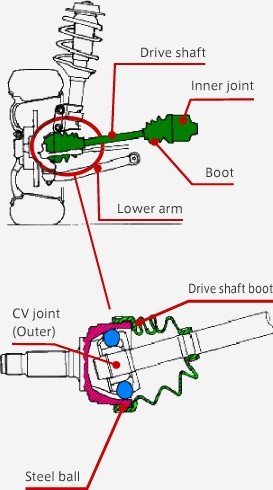
– Boots should be replaced before they tear.
Otherwise, an expensive repair such as the replacement of the driveshaft may be required.
What does a constant velocity joint do?
Improve the range of motion of your car wheels.
Transfer rotational power from the transmission to the car wheels efficiently.
To turn the car wheels at a constant speed regardless of operating angle.
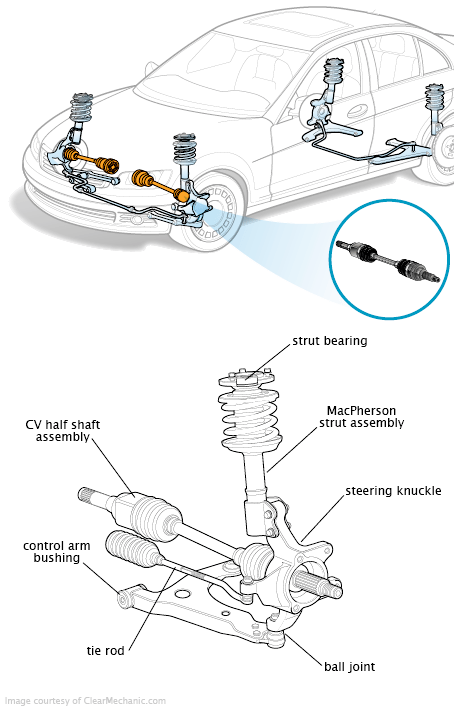
there are many variations and types of CV-Joint out there. Here are some of them:
Coupling Type
Thompson Coupling
Double Cardan
Tracta Joint
Sliding Type
Tripod Joint
Double-Offset Style
Cross-Groove Style
Fixed Cup Type
Rzeppa Joint
Ball and groove
